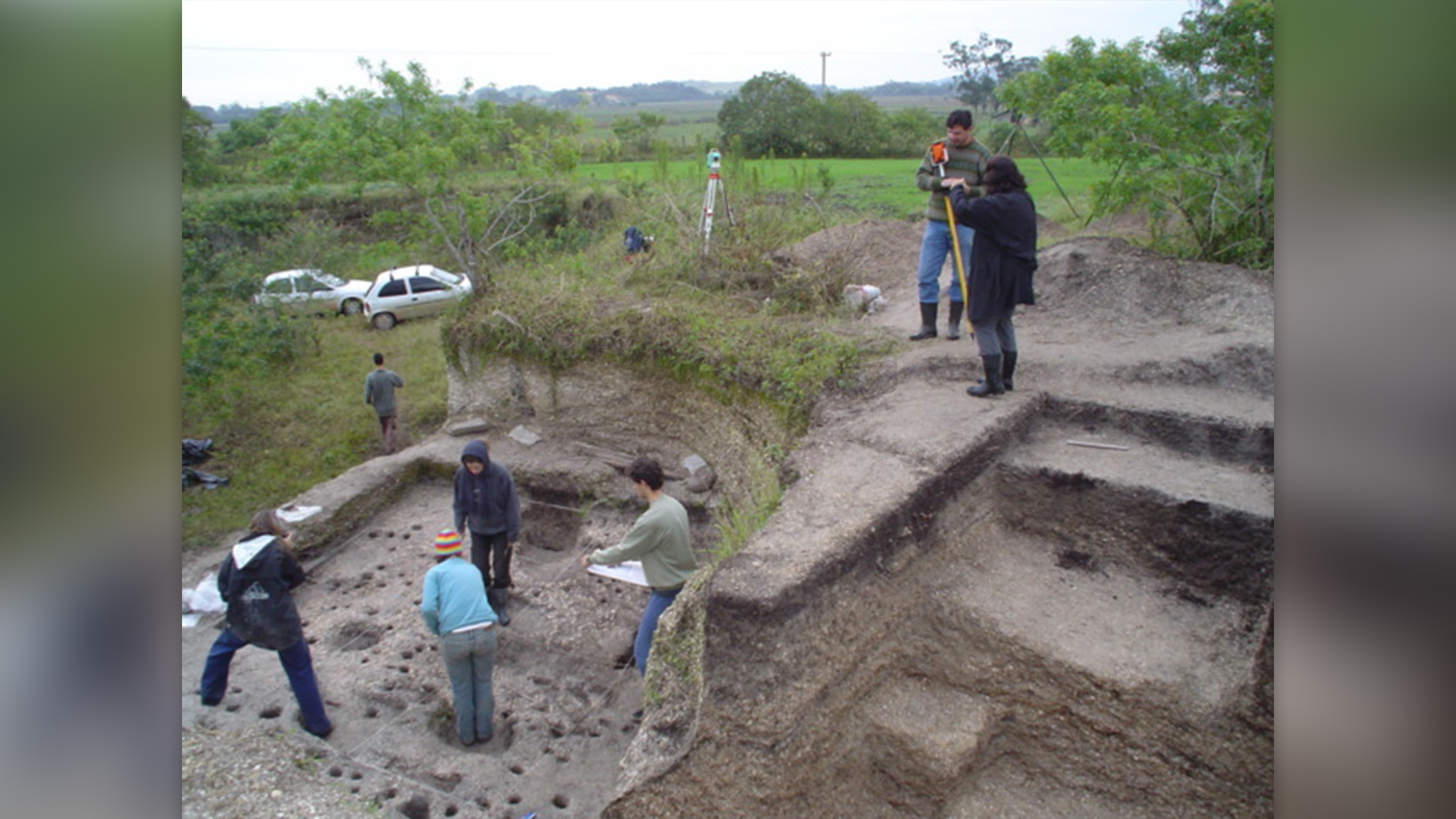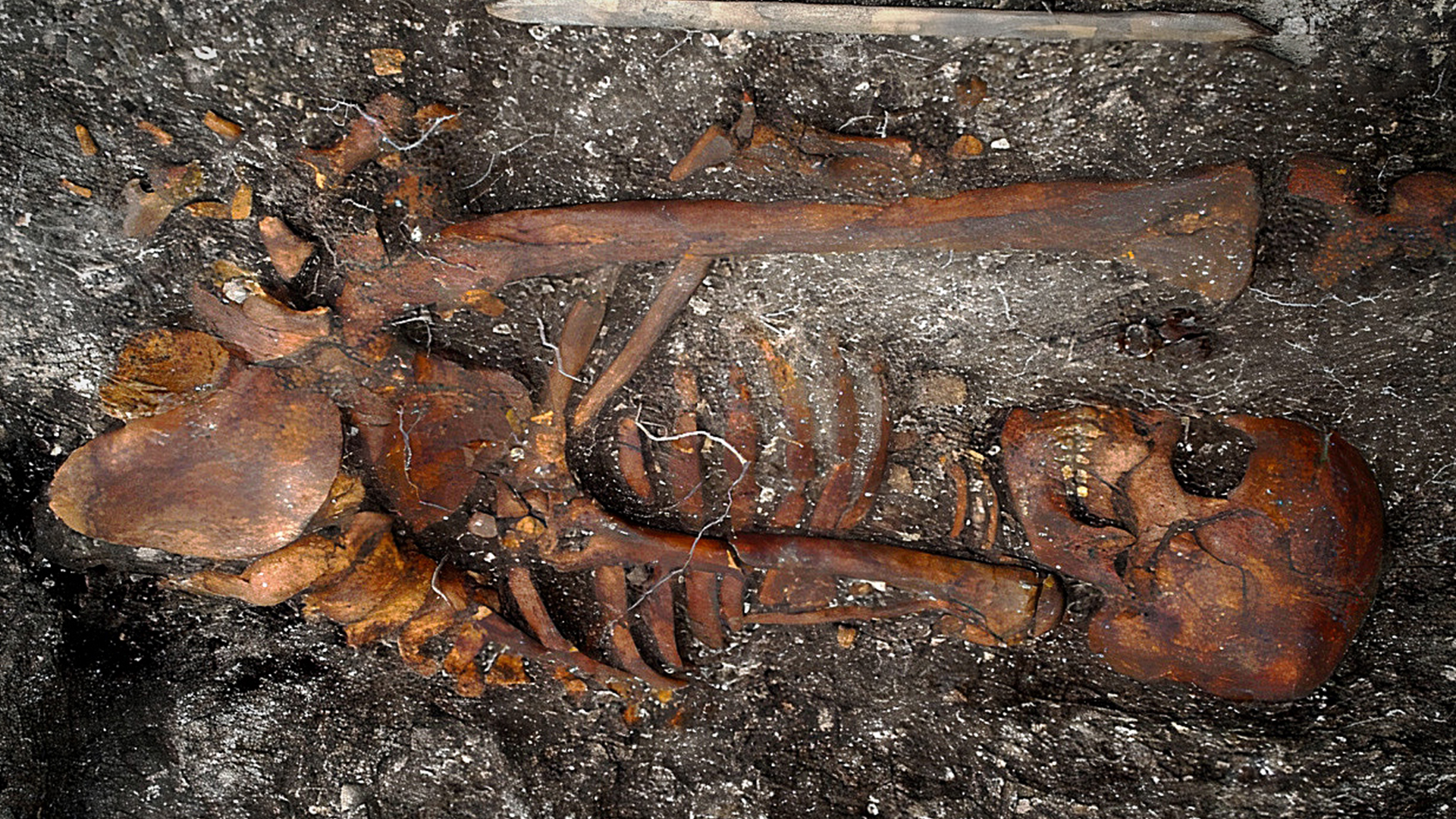People living on the coast of Brazil thousands of years ago carried the bacterium Treponema pallidum endemicum, a close relative of the microbe behind venereal syphilis, cutting-edge DNA research has revealed. The infection likely left the group with mouth sores and painful shins.
Scientists found the microbe’s DNA in 2,000-year-old human skeletons and used it to construct the oldest-known genome of a syphilis relative yet discovered. They reported their findings Wednesday (Jan. 24) in the journal Nature, and their discovery pushes back the origin of the microbe by more than 1,000 years.
The origins of syphilis itself have been debated since an epidemic tore through Europe in 1495. Christopher Columbus and his men were often blamed for bringing the sexually transmitted infection to Europe, but recent research suggests the disease was on the continent prior to their transatlantic journey.
Modern research has also revealed that syphilis is just one of four diseases caused by the same close-knit family of bacteria. The other three “treponemal” diseases — bejel, yaws and pinta — are not venereal and generally cause chronic infections of the mouth and skin.
Related: Person who had measles 100 years ago helps scientists trace origins of virus
In recent decades, archaeologists in Europe and the Americas have investigated the origins of syphilis and its non-venereal cousins by looking for changes in bone that are characteristic of the diseases. But until now, they hadn’t found any genetic evidence of these diseases prior to Columbus’ first journey to the Americas.
Now, Verena Schünemann, a paleogeneticist at the University of Zurich, and her team have uncovered DNA from the bacterium T. pallidum endemicum in skeletons from the archaeological site of Jabuticabeira II. The site is located near Laguna do Camacho, on the south coast of Brazil.
More than 200 people were buried at Jabuticabeira II over a 1,500-year period, from 1200 B.C. to A.D. 400, each person tightly curled up and given offerings, such as stone tools, fish and red ochre. A previous analysis of the skeletons revealed dozens of cases of bone lesions that hinted at treponemal disease.
To further study these remains, Schünemann and colleagues screened bone samples from 99 of the skeletons for DNA from pathogens. They found that 37 of the skeletons were positive for treponemal DNA. Four of the samples, dating from 350 B.C. to A.D. 573, produced enough data for the researchers to reconstruct the pathogen’s genome.
“Unexpectedly, these genomes are remarkably similar to those of the causative agent of modern day bejel,” the researchers wrote in the study.

Also called endemic syphilis, bejel spreads from person to person via contact with skin or mouth lesions. Today, it occurs in hot, arid parts of the eastern Mediterranean and western Asia, not in coastal, humid locales like that part of Brazil.
Like venereal syphilis, bejel can be treated with antibiotics. But thousands of years ago, the Indigenous people in Brazil likely had no effective treatment, meaning they simply lived with the condition.
“There are no historical texts describing the symptoms the people had 2,000 years ago,” Schünemann told Live Science in an email. However, “the bacteria likely also caused similar skin lesions [to modern bejel].”
Related: ‘Lost’ bacteria found on Neanderthal teeth could be used to develop new antibiotics
None of the people buried at Jabuticabeira II appeared to have been ostracized because of their disease. “The individuals positive for treponemal DNA were not buried separately from other individuals, suggesting that they were treated equally,” the researchers wrote in their study.

The study places bejel in South America long before European contact in the 15th century, the scientists wrote. It also enabled the researchers to recalculate the bacterium’s likely date of origin, placing it sometime between 780 B.C. and A.D. 450, more than a thousand years earlier than previously thought.
Brenda Baker, an anthropologist at Arizona State University who was not involved in the project, told Live Science in an email that the study’s findings are very exciting and support the hypothesis that treponemal diseases have been around for a long time in the Americas.
“The recovery of such an ancient treponemal genome suggests that we may soon be able to fill in huge gaps in our understanding of the evolution and distribution of this pathogen in antiquity as more aDNA [ancient DNA] is recovered from other locations around the world,” Baker said.
However, this new origin date for bejel does not provide clues to the origins of venereal syphilis, Schünemann noted.
“Unfortunately, we don’t have enough data to be able to say which [T. pallidum] subspecies is the oldest,” Schünemann said. “More old genomes from other subspecies would be needed.”
Ever wonder why some people build muscle more easily than others or why freckles come out in the sun? Send us your questions about how the human body works to [email protected] with the subject line “Health Desk Q,” and you may see your question answered on the website!


